Handsome Fogel: "Swaggering out of the womb"
Finding Handsome 001-FOGEL: Wednesday March 22, 2023 at Sweaty Betty's Bar
“We were raised female, at a time when masculinity was considered the property of men…and it’s not anymore. Things have changed” - Fogel
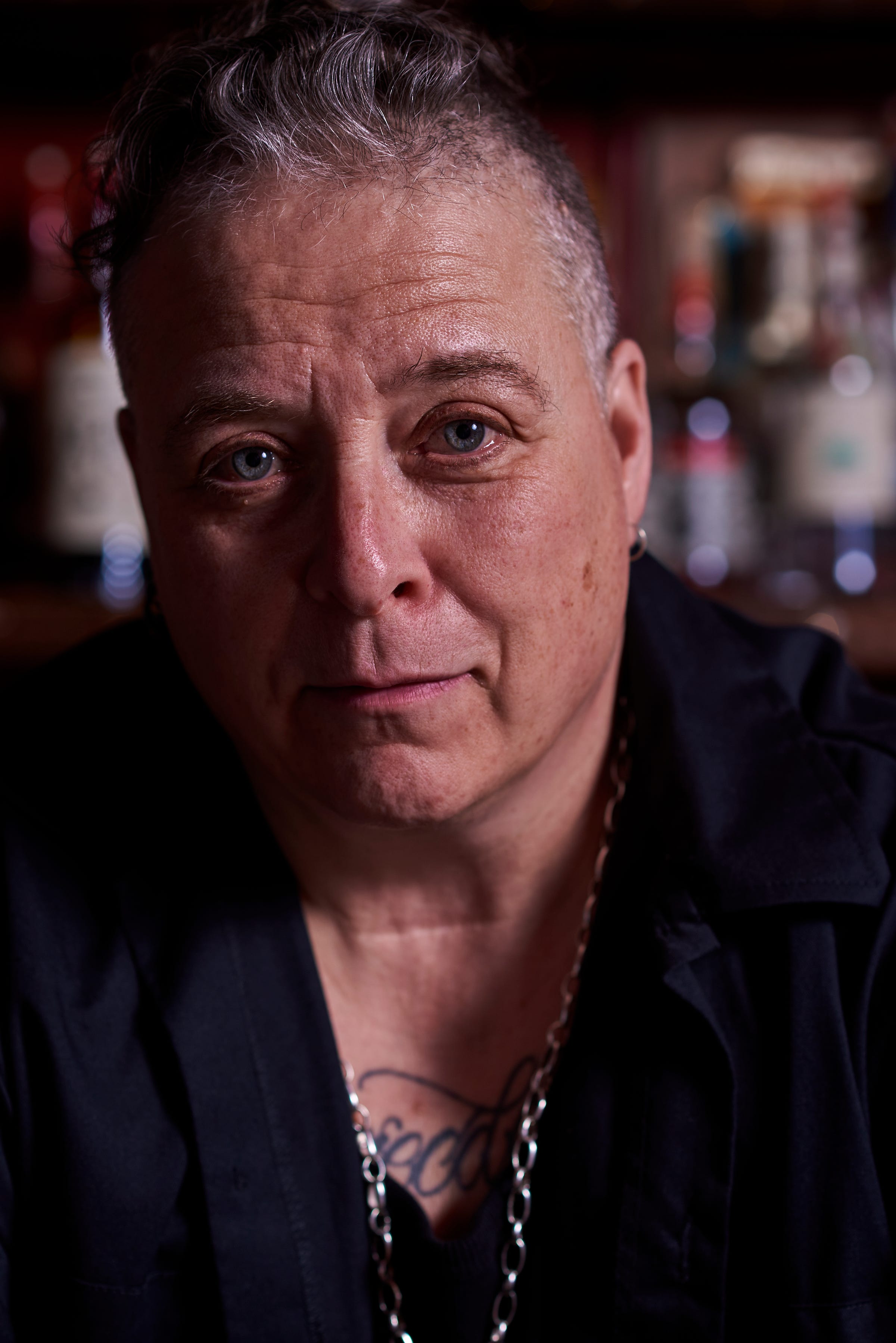
The first time I met Fogel, I was introduced by a party host in 1997 and told that this was someone I HAD to meet. I knew Fogel had to be the first person I needed to photograph for this project. I moved to Toronto in September 1996. I was 25 years old. I had lived in Ottawa, Peterborough, Santa Barbara, California, and Kingston, Ontario. I was trying to find my way in the big city of Toronto. I met Janis because one of my campers at the summer camp I was working at was bragging that her mom was a lesbian and that I should meet her. (It was rare in those days) This lesbian mom told me I should contact Janis if I was moving to Toronto and guess who the party host was! I suppose Janis Purdy thought that two Jewish Butches ought to be friends. Thank you Janis for opening up my world!
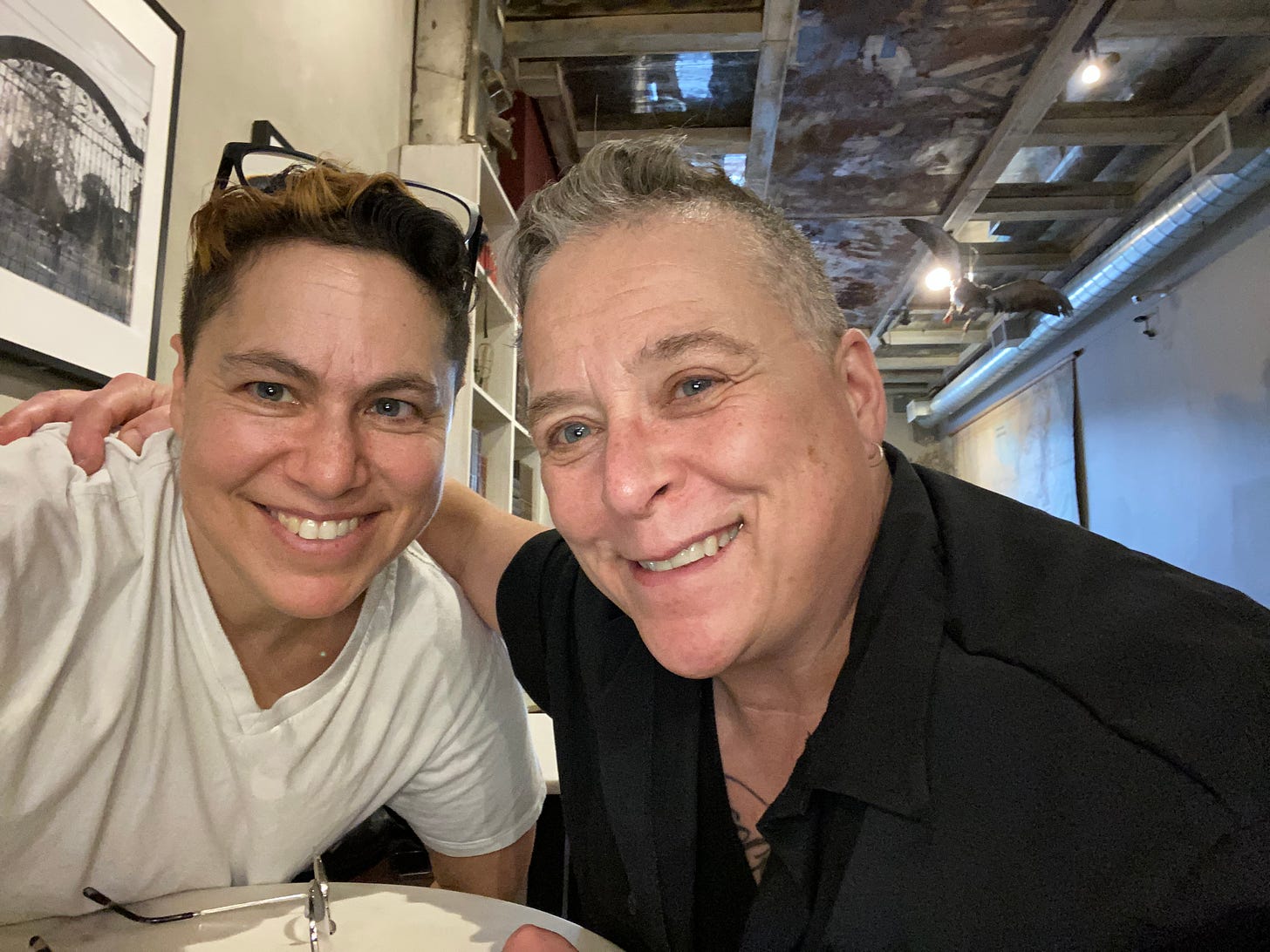
Fogel, for me, was iconic. Butch, masculine, gentle, and kind as she quietly took her post at “the bar” and took in her surroundings. It didn’t matter which bar I went to - if it was a dyke bar or event, Fogel was there; (I’m talking about the late 90s and early 2000s mostly) Ciao Edie, Buddies, Pope Joan, or whatever iteration that place had over the years. I never really knew Fogel well, but we always chatted every time we saw each other and I liked her from the start. I suppose this project helped Fogel and me connect more deeply than ever before.
So, Fogel was willing to be the first in this series, for which I am extremely grateful. Though with later handsome subjects I began doing video interviews, the Fogel sessions consisted of our pre-meeting (a phone call), the photo shoot and post-photo shoot coffee/hang-out, email responses to my questions, and an audio “interview”.
Each handsome session begins with a pre-shoot meeting where I ask people to think about the following:
What makes you feel handsome these days? How do you envision being photographed to most accurately represent, honour, and celebrate your version of handsome?
This is a collaborative experience. As the photographer, I will make artistic choices about the session based on my style. But I want to get this right and photograph you in a way that expresses you and your handsome the most authentically I can. Feel free to find some sample images to send me if you’d like.
Is there an object or thing that resonates with your handsomeness? Perhaps it’s something we can include in the photo shoot. Let’s chat about it!
Fogel and I agreed on a bar being the right location for this and Sweaty Betty’s owner May was thankfully agreeable - not at all a regular occurrence for her so I’m grateful to May for allowing us the use of the bar. Ciao Edie is long gone and Sweaty Betty’s has just the right feel. Here’s a little video of the setup. Note - this project was called “Handsome 45” for a bit when I first conceived of it - thinking I’d photograph 45 handsomes who were at least 45 years old. I quickly changed it to Finding Handsome because I wanted it to be more open-ended, and it truly is about our journeys to find our versions of handsome.
Here’s what it looked like while I was shooting.
And here are more of the results from that shoot.
After the shoot, Fogel asked if she could have a chance to respond to the questions in writing. Rather than editing what she wrote, I opted to include it here. Fogel’s writing is beautiful.
Travis: Where did you first see butch or trans-masculine imagery or identity in media or your life? Or if you didn’t, what was the first imagery you saw that resonated as non-cisgendered and how did that make you feel? What did that stir inside you - if anything?
Fogel: The first butch imagery I encountered was within the world of boys and men. I was young enough not to think about it too much or imagine that masculinity was the invention or property of men. I obsessed over men's clothing and accoutrements. The crispness of my father's undershirts and button-ups, the squareness and simplicity of his body. The sound of his watch being strapped to his wrist, the ritual of putting on his tie. My fascination with masculinity made me an outsider in my own family. My mother, in particular, struggled massively with my masculine presentation and often wept when she saw what I was wearing and how I was carrying myself. This was initially very confusing for me--and ultimately was really damaging-- because it was a natural way of being... one person in my life described me as 'swaggering out of the womb'...
Travis: Who did you emulate? Who did you build your identity off of if anyone? What image/icon, if any? Was there a celebrity, person you knew, or stranger you saw that made you think “That’s who I want to be” or “That’s who I am inside”?
Fogel: I always idolized people who worked with their hands--they were, without exception, men. When I was a kid, my parents would hire people to do things around the house. I watched those people with awe. And before I knew any language for butchness or queerness, I wanted work boots and keys dangling from my belt and to whistle through my teeth with a cigarette between my lips while I painted a ceiling.
From there, it was Kristy McNichol in the film Little Darlings-but even more so, Matt Dillon in that film.
Bruce Springsteen, Eddie Vedder (he was a long-hair "butch", like me at the time).
When I was in my 20s I met and became immediately obsessed with a definitively and unapologetically androgynous person. She was an enormous influence on my personal style and understanding of masculinity in female-bodied people.
The Shawna Dempsey and Lori Millan 1995 film A Day in the Life of a Bull Dyke is the only time I've seen a butch dyke representation in media that truly resonates with my gender identity. I have never otherwise seen a film or television program that portrays butchness to which I can fully relate.
Travis: What was the turning point? Or beginning. Was there a moment? Series of moments? What was your process of beginning to feel most like yourself? When did you come into your masculinity? Find your handsome? Or begin to understand and claim your gender and masculinity as something other than cis and something other than binary?
The best thing I did in the interest of feeling more like myself and coming into my masculinity was moving from the social gender confines and brutality of Saskatoon to the rich gender diversity of Toronto.
I began to see other female-bodied people who were gender-similar. I found out about Ivan Coyote in my 20s. Read Boys Like Her and found the elucidation of queer female-bodied masculinity and its contrast to queer femmeness. And I started to think more and more about what masculinity was and how I expressed it and found more language to talk about it with others.
Travis: What makes you feel handsome now? Is it clothing (or lack of clothing), is it a place on the map, a state of being, or how you are seen by someone else - the way you feel about yourself when someone reflects the “you” you feel the best about? Or is it something else entirely?
Fogel: The scars and fears I carry from being brutalized for my gender expression are deep, and despite my best efforts, permanent. So, feeling handsome is elusive and conditional for me. What best affirms me is encountering--and getting acknowledgment from-- others who are expressing their butchness, whether it's a nod or a moment of recognition.
It has also been profound for me to have found connections within the queer bar world, whether it's from queer femmes or others who are masculine-of-centre, the queer bar space has been a place of belonging, finding myself, feeling understood, and sometimes, rarely, if I'm really really lucky, and all the stars align, finding a moment of handsome.
When asked about an object, Fogel instantly knew it was the pocket watch she had bought with her paper route money. Here she is telling the story.
“This is a great symbol for me of how I was insistently me” - Fogel

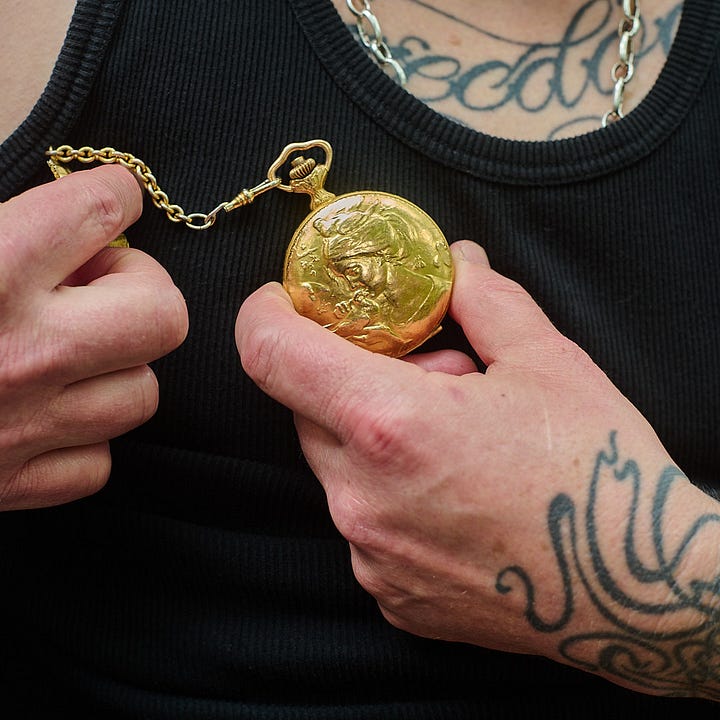
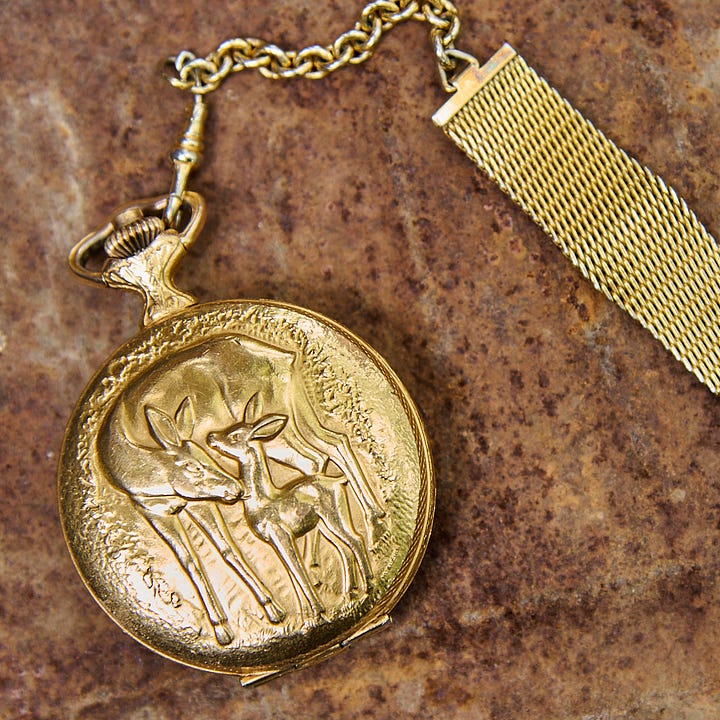
Fogel and I discussed many things the day she came over with her pocket watch. There’s only so much I can put down here, but my favourite thing about this project is the connection with my fellow handsomes. To learn and share stories that our generation - truly the last whose childhood and adolescence happened without the internet. It was a very very different world.
Taken from the audio, last words from Fogel:
Fogel: People can be butch any way they want to be and that’s how I identify now. Butch is inherently non-binary. But for me just one of the things that’s really important in my view for people who are marginalized, or people who feel really estranged in the world is to be able to see representations of themselves.
Travis: Yes!
Fogel: "Well where are they?
Travis: Well they’re in this project - that’s why I’m doing this.





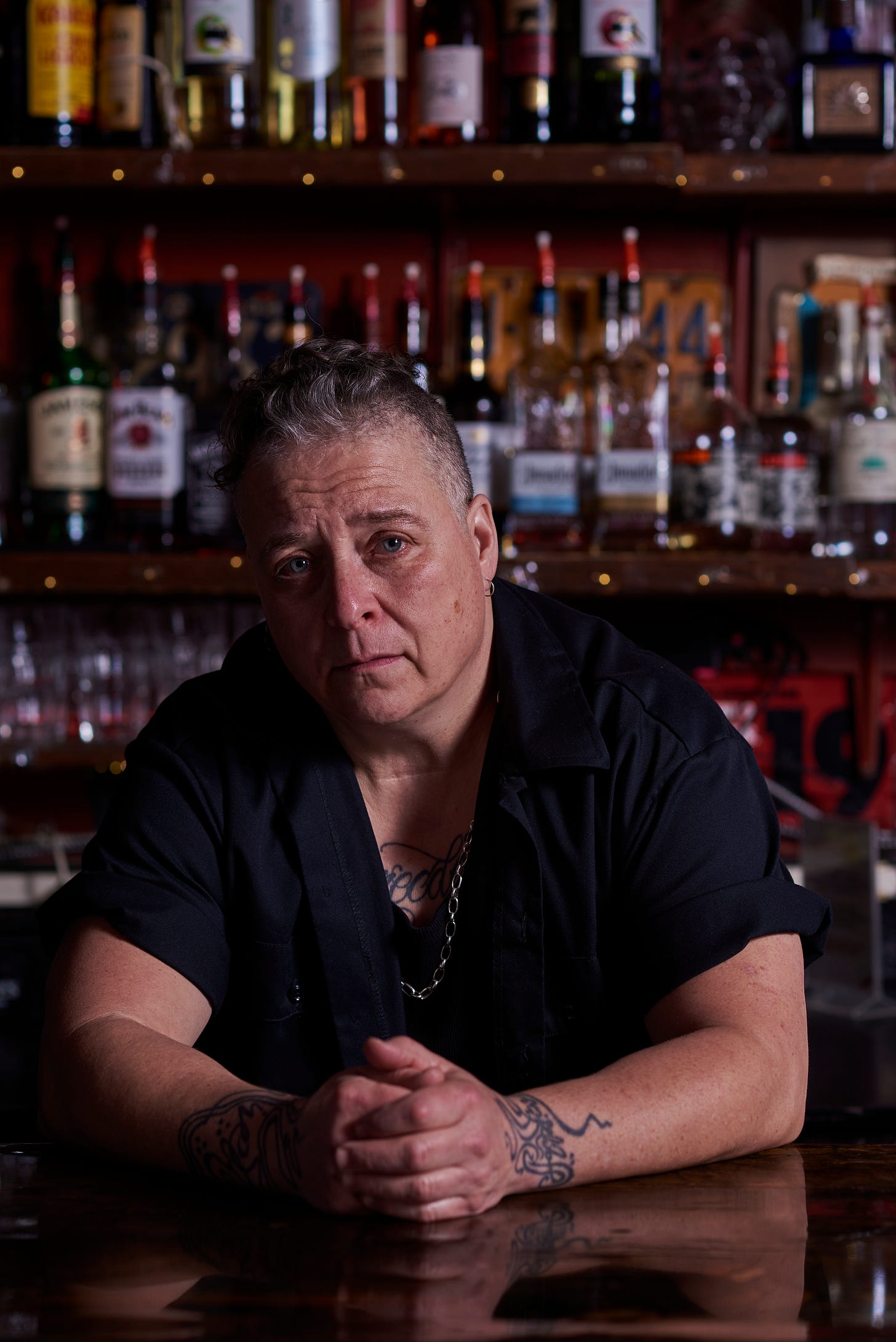
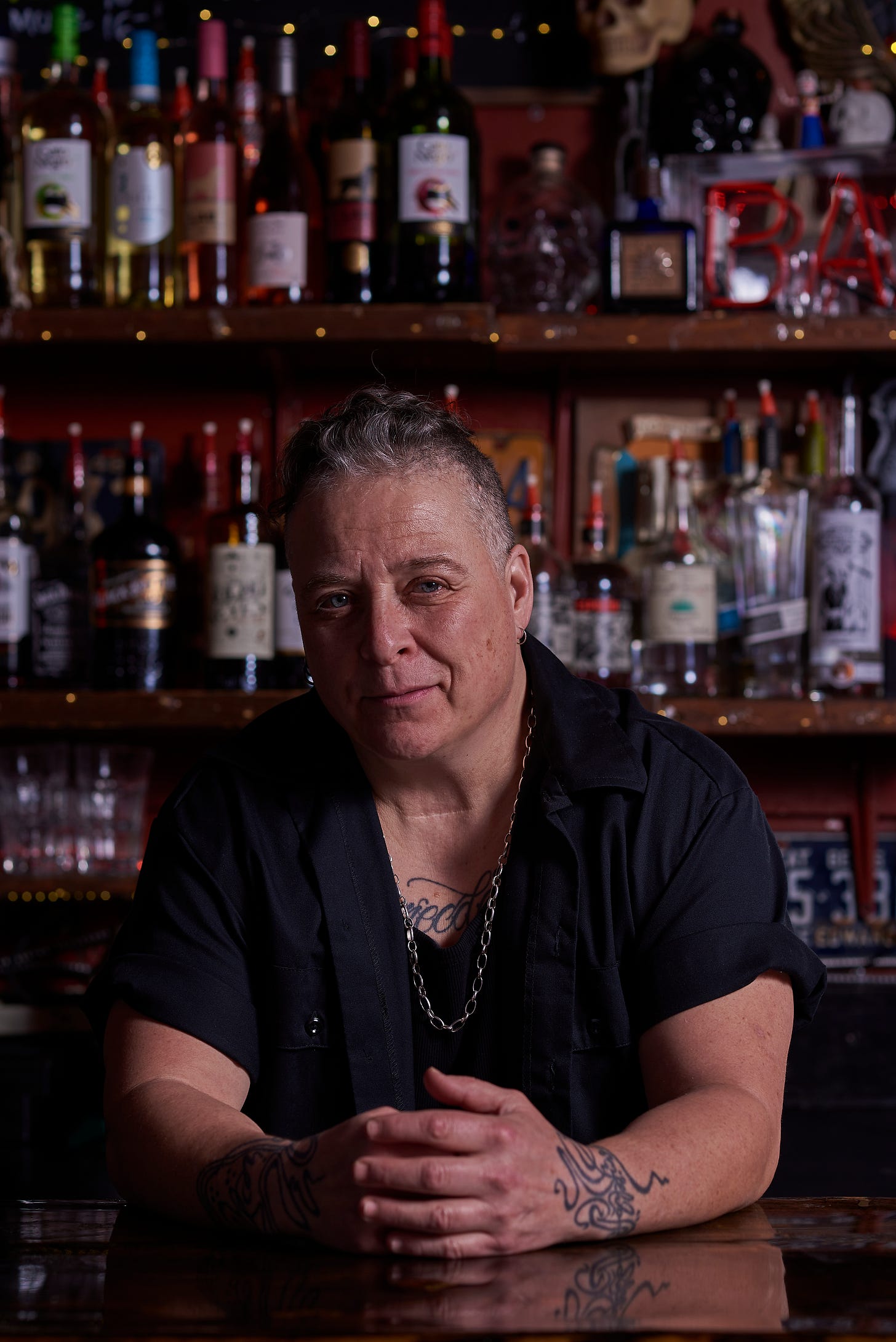
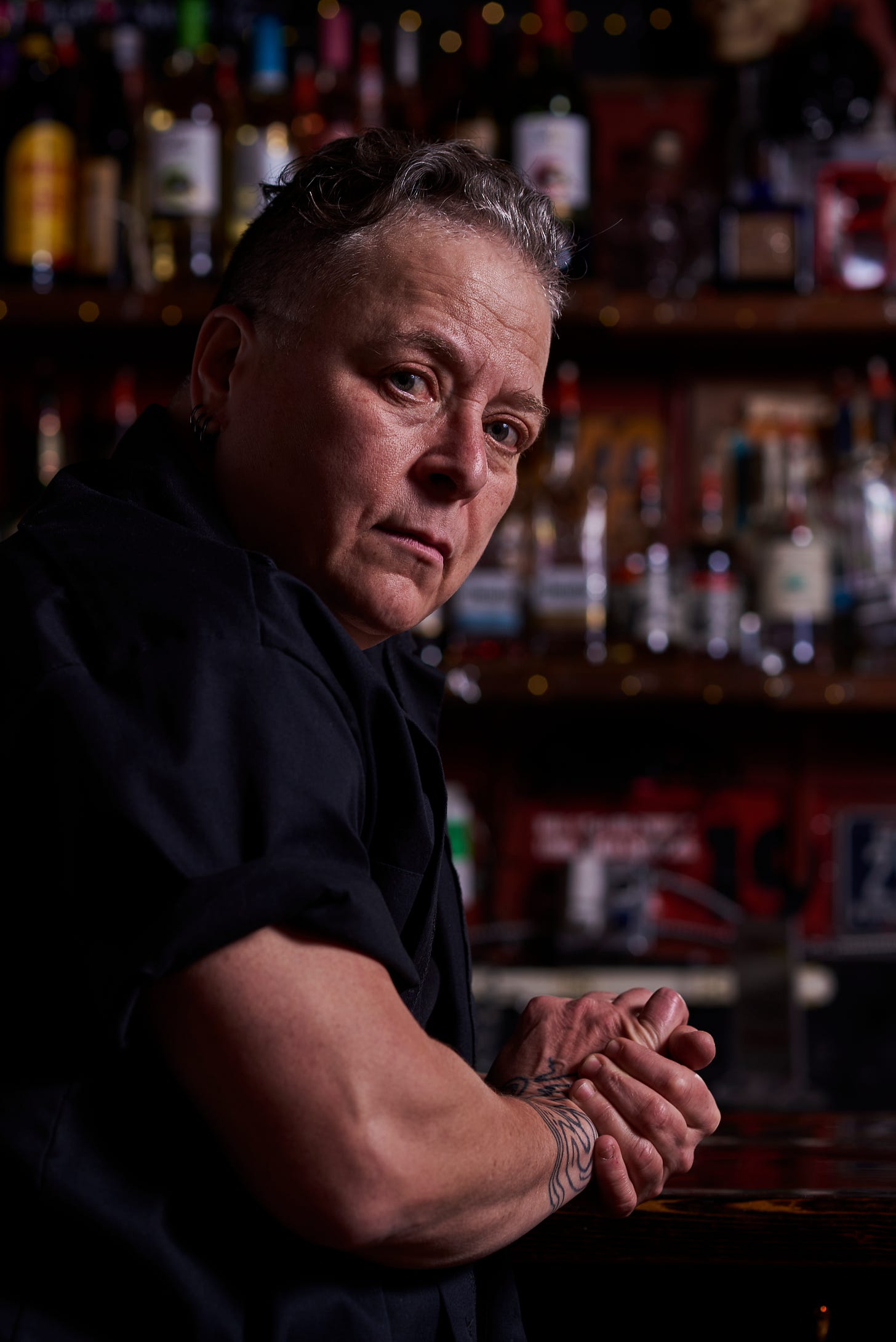
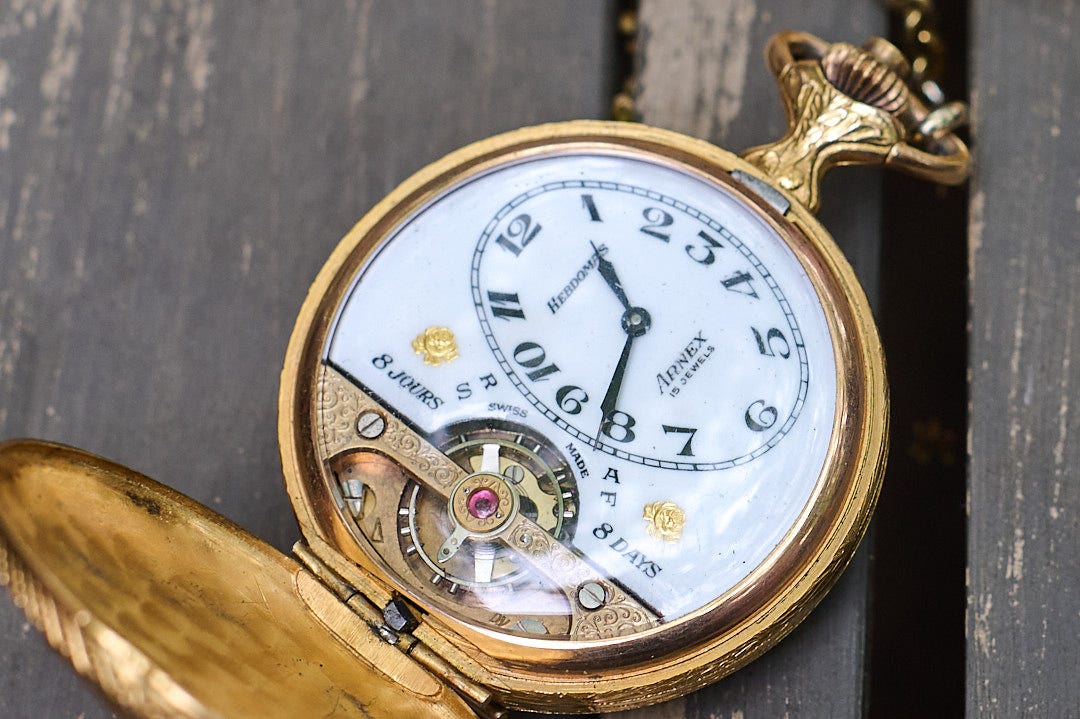
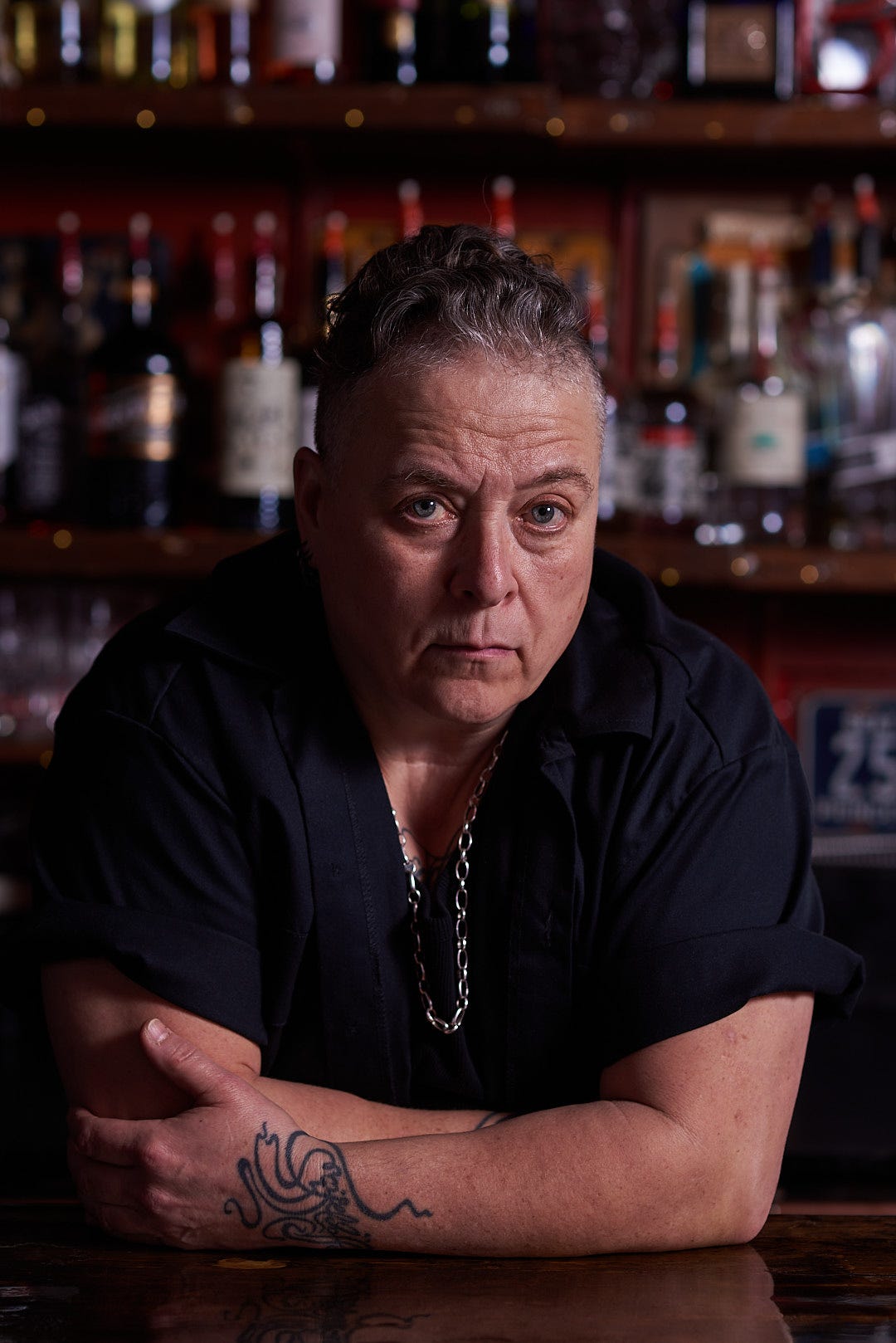
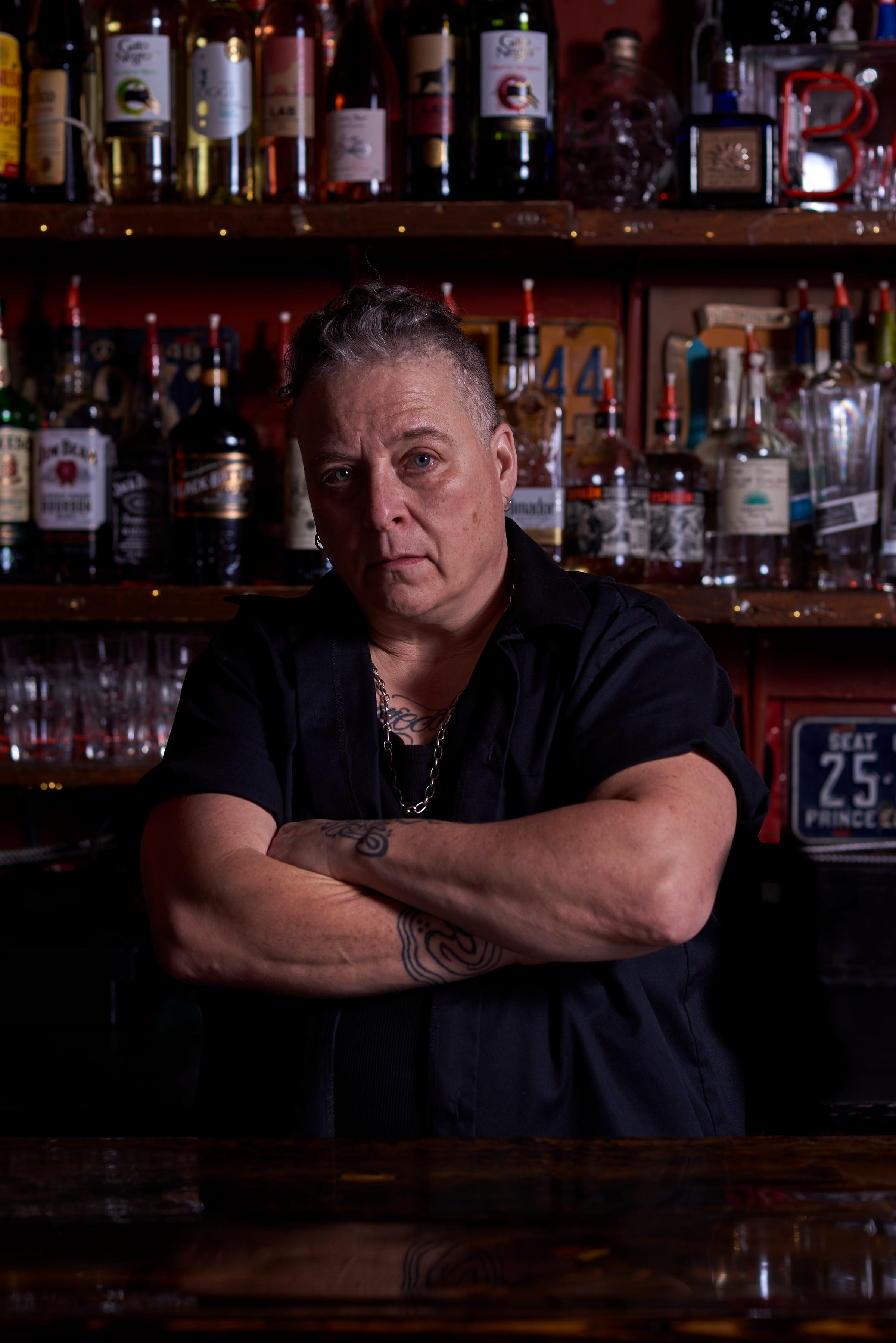
Keep these
Coming Travis.